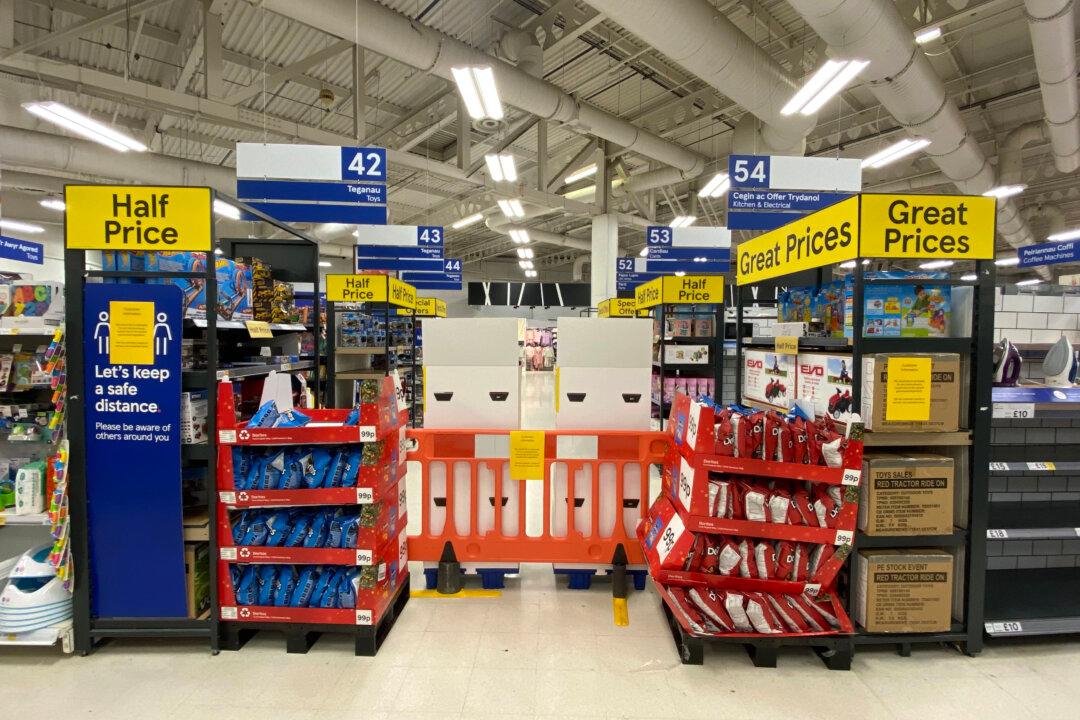Retailers want the Welsh government to lift the ban on the sale of “non-essentials” that led to aisles being blocked and shelves covered, and to instead shift the onus onto customers to act responsibly.
In return, supermarkets will use their speaker systems, signs, and social media to persuade customers to put off non-essential purchases, as proposed in recommendations on Tuesday from business leaders.





